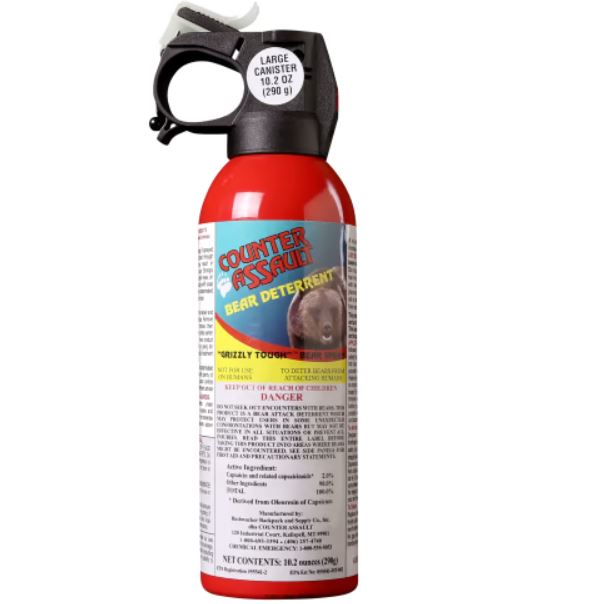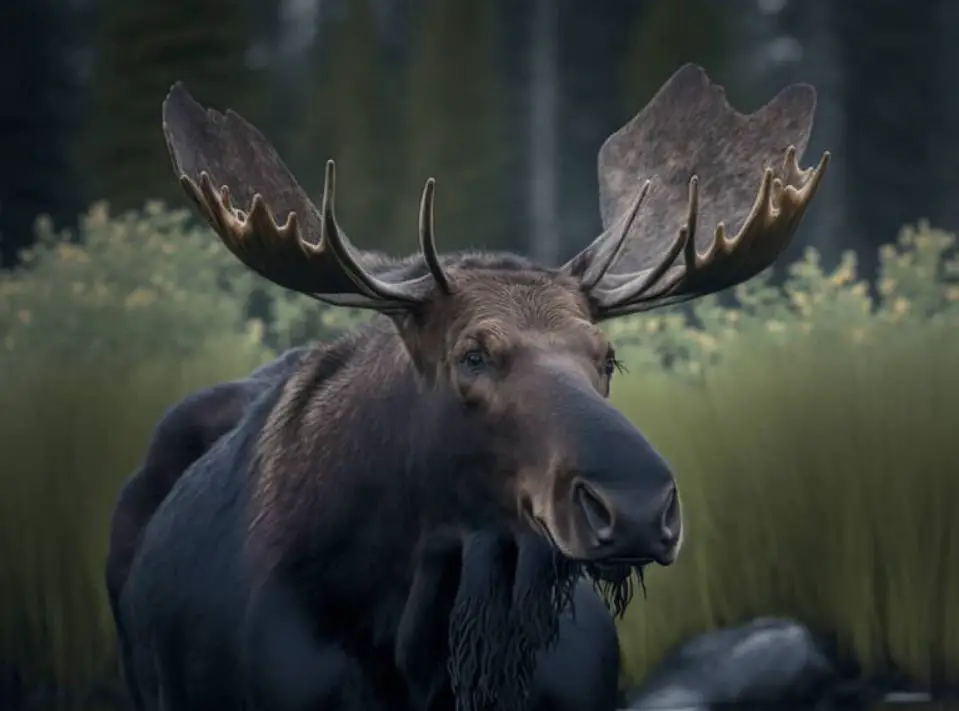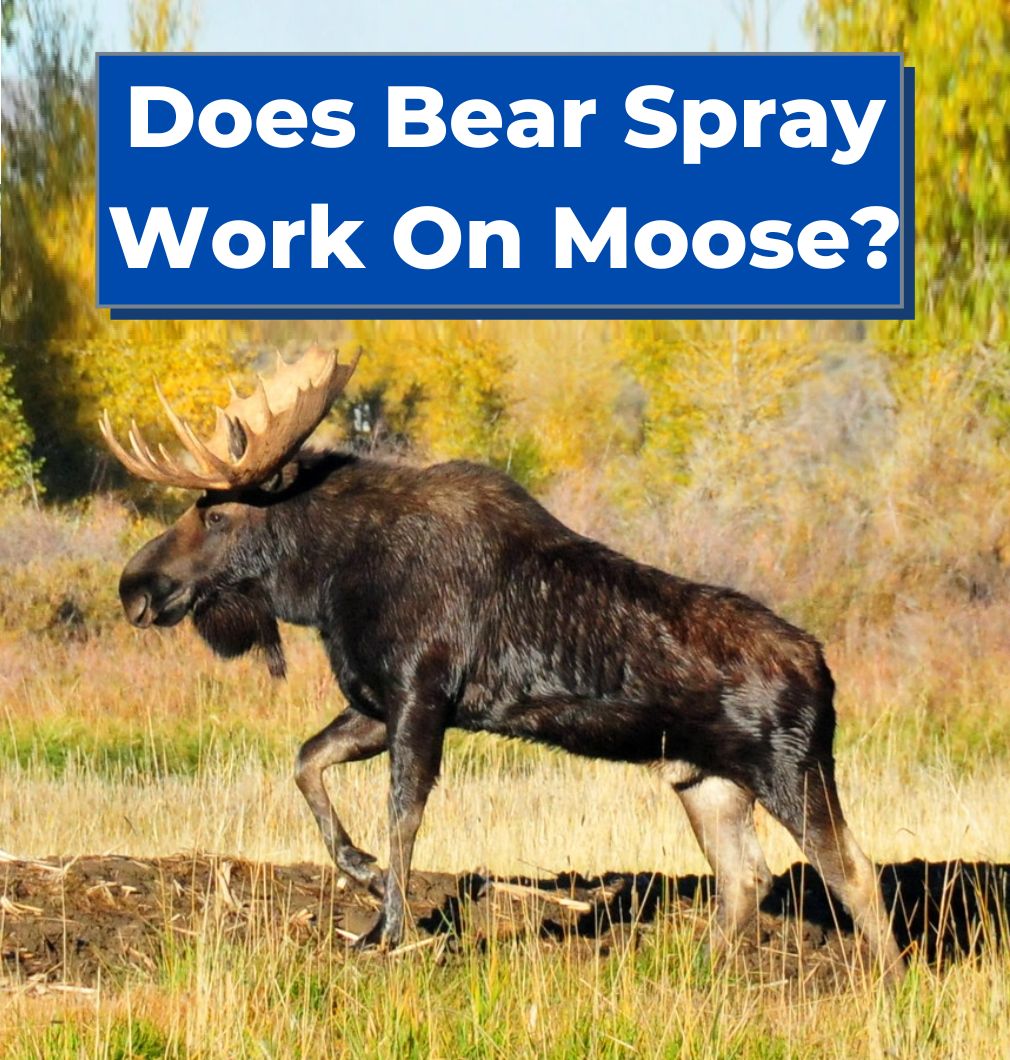If you are an outdoor enthusiast, then you know that camping and hiking can be both fun and dangerous. Meeting a moose can be scary and dangerous at the same time. That’s why knowing how to protect yourself from these animals is essential. One of the most popular ways to protect yourself from large mammals such as moose is by using bear spray. But does bear spray work on moose?
According to several sources, bear spray is effective against almost all mammals, including moose. Moose can be unpredictable and aggressive, especially during their mating season or when they feel threatened. Moose attacks can cause serious injuries and in some cases, even death. That’s why having a reliable defense mechanism is important when you’re in moose territory. Bear spray is a non-lethal, effective way to deter moose attacks and protect yourself from harm.
Bear Spray vs. Moose

How Bear Spray Works
Bear spray is a type of pepper spray that is specifically designed to deter bears and other wildlife. It contains capsaicin, which is the same chemical that makes peppers spicy. When sprayed, capsaicin irritates the animal’s eyes, nose, and throat, causing temporary blindness, coughing, and difficulty breathing. This deterrent gives the person enough time to escape the animal’s attack.
Effectiveness of Bear Spray on Moose
Bear spray can work against almost all mammals, including moose. Bear spray is often even more effective than firearms when deterring moose attacks. Moose are large animals that can weigh up to 1,500 pounds and can be very aggressive, especially during mating season or when they feel threatened.
While bear spray is effective against moose, it is important to note that it is not a guarantee. Using bear spray properly and keeping a safe distance from the animal is important. In addition, it is important to check the bear spray’s expiration date and practice using it before going into the wilderness.
Aiming for the animal’s face and spraying in short bursts is important. It is also essential to have a backup plan in case the bear spray does not work, such as a loud noise or a flare.
Respecting the animal’s space and to avoid confrontations whenever possible will also keep you out of trouble.
Using Bear Spray Against Moose
How to Use Bear Spray
Bear spray is an effective way to deter a moose attack. When using bear spray against a moose, it is important to follow these steps:
- Remove the safety clip from the canister (practice this beforehand)
- Stand your ground at 20-30 feet from the moose (if possible)
- Ensure the wind is blowing in your favor so the spray does not blow back on you.
- Aim the canister at the moose’s eyes and face.
- Press the trigger to release the spray, spraying in short bursts.
- Move away from the moose as quickly as possible.
It is important to practice using bear spray before encountering a moose to ensure you know how to use it properly.
Remember, bear spray is not a guarantee of safety and should only be used as a last resort. It is important always to be aware of your surroundings and avoid getting too close to a moose.
Understanding Moose Behavior

Moose Aggression
Moose are generally docile creatures, but they can become aggressive if they feel threatened or cornered. Moose aggression is most common during the mating season, which lasts from September to October. During this time, male moose, also known as bulls, become more territorial and may attack humans or other animals that they perceive as a threat to their territory or potential mates.
Females, also known as cows, may also become aggressive if they feel their calves are threatened. It is important to keep a safe distance from moose and avoid getting between a cow and her calf, especially during the calving season, which lasts from May to June.
Factors That Trigger Moose Attacks
Several factors can trigger moose attacks, including:
- Approaching too closely or too quickly
- Surprising a moose
- Getting between a cow and her calf
- Getting too close to a bull during the mating season
- Threatening or cornering a moose
- Having dogs nearby can exacerbate the problem
It is important to be aware of these triggers and take precautions to avoid them. Moose may also become agitated if they are injured, sick, or feel threatened by a predator. In these situations, it is best to give the moose plenty of space and avoid approaching them.
Can You Use Bear Spray On Moose? Wrapping Things Up
So by now you know that bear spray can effectively deter moose attacks. While moose are not specifically mentioned in most bear spray product descriptions, the active ingredients in bear spray irritate the eyes, nose, and throat of animals, causing them to back off. Moose have been known to be deterred by bear spray in the past, and there are several reports of the successful use of bear spray on moose.
However, it is important to note that bear spray is not a guaranteed solution to prevent moose attacks. Like any wildlife encounter, the best way to avoid an attack is to stay alert, make noise, and give the animal plenty of space. If a moose does charge, bear spray can be a useful tool to deter the animal, but it is not a substitute for proper wildlife safety precautions.
Choosing a high-quality bear spray product and learning how to use it properly before heading out into the wilderness is also important. Quality bear sprays are designed to disperse in a wide fog, making accurate aim less critical in high-pressure situations. It is also important to note that pepper sprays are not the same as bear sprays and may be ineffective in deterring wildlife attacks.

